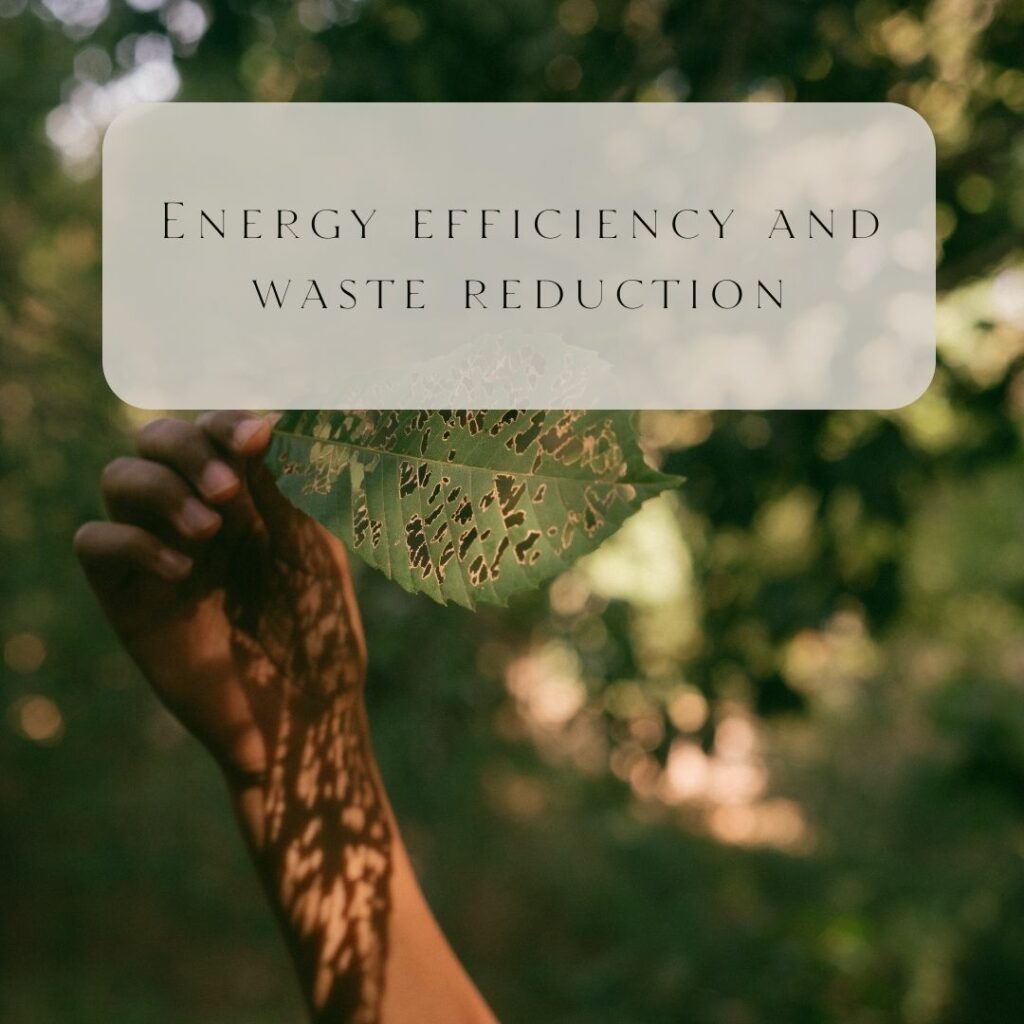
Understanding sustainability in business
Sustainability has become a buzzword in recent years, and for good reason. It refers to the ability of a business to meet its
present needs without compromising the ability of future generations to meet their own needs. In the context of environmental sustainability, businesses must adopt practices that minimize their impact on the planet and promote a greener future.
To truly understand sustainability in business, it is important to recognize that it encompasses more than just environmental initiatives. While eco-friendly practices are a crucial part of the equation, sustainability also involves social and economic aspects. This holistic approach ensures that businesses not only protect the environment but also prioritize the well-being of their employees, customers, and communities.

The importance of eco-friendly practices
Embracing eco-friendly practices is no longer optional for businesses; it is a necessity. The global climate crisis and increasing consumer demand for sustainable products and services have pushed sustainability to the top of the corporate agenda. By adopting eco-friendly practices, businesses can align themselves with the values of their customers, attract new environmentally conscious consumers, and differentiate themselves from their competitors.
Moreover, eco-friendly practices can have a positive impact on a company’s bottom line. Energy-efficient operations, waste reduction programs, and sustainable sourcing strategies can lead to cost savings and operational efficiencies. By minimizing resource consumption and optimizing processes, businesses can not only reduce their environmental footprint but also improve their profitability.
If you have ideas for setting up your own sustainable business but maybe lack the motivation I have a FREE hypnosis recording to help you move forward and achieve your goals. Also, when you receive your free hypnosis you will be included in our weekly newsletter to receive your weekly blog in your inbox so you dont miss a beat and be the first to know.

Benefits of implementing eco-friendly practices
The benefits of implementing eco-friendly practices extend beyond the environment and the financial aspect. Embracing sustainability can also enhance a company’s brand image and reputation. In today’s socially connected world, consumers are increasingly scrutinizing businesses for their environmental practices. By demonstrating a commitment to eco-friendly initiatives, companies can build trust and loyalty among their target audience.
Furthermore, sustainability can attract and retain top talent. Today’s workforce is more socially and environmentally conscious than ever before. Employees want to work for companies that share their values and provide a sense of purpose. By prioritizing sustainability, businesses can attract skilled professionals who are passionate about making a positive impact on the world.
Try your FREE hypnosis recording here to see positive changes in your life.

Examples of successful sustainable businesses
Several companies have successfully integrated eco-friendly practices into their business models and serve as inspiring examples for others. Patagonia, an outdoor clothing and gear retailer, has long been a champion of sustainability. The company has implemented various initiatives, such as reducing water and energy consumption, using recycled materials, and promoting fair labor practices.
Tesla, the electric vehicle manufacturer, is another prime example of a sustainable business. Tesla’s mission is to accelerate the world’s transition to sustainable energy. By producing electric vehicles and renewable energy products, Tesla is leading the way towards a greener transportation and energy sector.

Steps to building an eco-friendly business
Building an eco-friendly business requires a systematic and comprehensive approach. Here are some key steps that companies can take to integrate sustainability into their operations.

Sustainable sourcing and supply chain management
One of the first steps towards becoming a sustainable business is to evaluate and optimize the sourcing and supply chain processes. This involves identifying suppliers that share the same environmental values and prioritize sustainable practices. By working with eco-friendly suppliers, businesses can ensure that their products and services are sourced ethically and minimize their environmental impact.

Energy efficiency and waste reduction
Energy-efficient operations not only reduce a business’s carbon footprint but also lead to cost savings. Companies can invest in energy-efficient technologies, such as LED lighting and smart thermostats, to minimize energy consumption. Additionally, implementing waste reduction programs, such as recycling and composting, can divert waste from landfills and promote a circular economy.

Promoting eco-friendly products and services
Businesses can play a significant role in driving consumer behavior towards sustainable choices by offering eco-friendly products and services. This involves incorporating sustainability considerations into product design, manufacturing processes, and packaging. By providing sustainable alternatives to conventional products, companies can encourage consumers to make more environmentally conscious purchasing decisions.

Green marketing strategies
To maximize the impact of eco-friendly practices, businesses need to effectively communicate their sustainability efforts to their target audience. Green marketing strategies, such as highlighting eco-friendly certifications, using sustainable packaging, and sharing sustainability reports, can help build trust and credibility among consumers. By transparently showcasing their commitment to the environment, businesses can attract and retain environmentally conscious customers.

The future of sustainable businesses
As the world grapples with the challenges of climate change and resource depletion, sustainable businesses have an increasingly important role to play. By adopting eco-friendly practices, companies can not only reduce their environmental impact but also attract socially responsible consumers and enhance their brand image.
Building a sustainable business requires a long-term commitment and a willingness to embrace change. From sustainable sourcing and supply chain management to energy efficiency and waste reduction, every step towards sustainability counts. By taking responsibility and leading the way towards a greener future, businesses can contribute to a more sustainable world for generations to come.
Join us on this journey towards building a sustainable future. Discover how integrating eco-friendly practices into your business not only benefits the environment but also enhances your brand image and attracts conscientious consumers. Let’s take responsibility and lead the way towards a greener, more sustainable world.
Sign up to receive your weekly blog straight to your inbox and receive a FREE hypnosis!






0 Comments